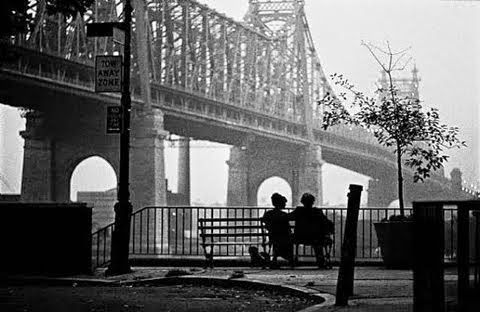Let's be clear right off the bat: if you can think of a time that David Bowie gave a BAD performance, I want to know what it is. Hell, even his turn as special agent Jeffries in the warped cucumber known as Twin Peaks: Fire Walk with Me was memorable and exciting. But as he has now passed on to Mars or Jupiter or wherever it was that David Robert Jones beamed down to become David Bowie on Earth, one should seek out the films and performances not experienced before and see if there's any break in this ideal of Bowie always being great. So, how does Merry Christmas, Mr. Lawrence hold up? What does it have to say about men caught in the horrors of world war 2?
The good news is that the performances in this film are airtight and mostly exceptional to watch. The film, from provocateur Nagisa Oshima (of the notorious In the Realm of the Senses and even better Empire of Passion), is one of a handful of POW movies, maybe the only one I can immediately think of (aside from the weak-tea of Jolie's Unbroken) that doesn't involve some element of prisoners escaping. It's a film much more interested in character than any sort of typical plot, which is and isn't an advantage for Oshima.
On this island of Java, Lawrence (Tom Conti) is one of the only English officer (if not the only one) who can speak and understand Japanese, and is able to talk (sometimes) with one of the guards, Hara (Takeshi Kitano in his first major role). Everyone has to deal with a Captain Yonoi (Ryûichi Sakamoto) who is one of those super-strict-headstrong-you-WILL-DO-as-I-SAY officers who starts off in the film by being caught in a conflict between a Korean soldier and a Dutchmen in a, well, homosexual/rape encounter.
But enter new prisoner Jack Celliers (Bowie), who keeps getting psychologically tortured; when we first meet him we think he may be facing death by a firing squad, but they're all blanks (surely the scene that shook me the most, especially as Jack refuses the white blindfold, which is supposed to be for the shooters to not look into HIS eyes, which oddly enough are Bowie's own mixed-iris-colors, but I digress).
The real torture comes for Yonoi, as he is one of those millions of Japanese men over the centuries who has to hold everything emotionally inside - though Ryuichi has some subtle and not-so-subtle facial tics and slight darts of the eyes in certain moments that betray his inner conflicts - and thus can't come out and say that he has, in so many words, a giant man-crush on Celliers.
It's not exactly reciprocated, as I don't think Oshima (or from the script and book, which was inspired by real experiences for author Laurens van der Post) was interested in a homosexual relationship explored in both ways, and thus Celliers sexuality is elusive or more ambiguous. The relationship that's crucial for Jack is with Mr. Lawrence, as they both have to navigate how they can get through the Captain's brutality and a sort of oddly (in)consistent view of whether his soldiers should commit harakiri for mistakes or offences (at one point the British officers are forced to watch one such suicide, leading to an even more gruesome outcome for one of the officers).
In other words, this isn't about following soldiers going from A-to-B-to-C to figure out a way out of such a mess, and that made it interesting at times. I was glad to just sink into a scenario that was more about the mind games being played between people, and of course the culture clashes of the British (who are, conventionally but truly, stalwart and real in that Western way) and the Japanese (who are uptight in their own ways but seeing all prisoners as cowards for not killing themselves, ala the Kamikaze pilots for example).

Yet despite scenes that are meant to build up some background on the characters - Lawrence and Celliers talking with one another, physically and spiritually damaged in the middle of the night, about their pasts, with Bowie flashing back to incidents with his younger brother when he did (and didn't) protect him from the scourge of English school-yard bullies, again typical but well-staged and emotional for the younger brother's moment of singing - I often felt like I was more-so observing these characters than getting fully immersed with them. Long static shots let one see Oshima displaying the disconnect between the English and Japanese, but I think the focus, shifting between so much from Celliers (for short burst) and then it really being about Lawrence and the Captain, I felt kind of hurt the narrative somewhat.
Yet, I must say again, the performances and the emotion the actors put in bump up the proceedings to be a good movie. Bowie is so intense and yet at times playful in the role - when his character comes back from sneaking off to get flowers and food for his fellow prisoners it's both serious and lark in equal measure, and watch how he tries to keep singing going as the Japanese officers are coming to the barracks, it's an extraordinary moment - and it could be called one of his very best turns.
If there was a disconnect perhaps it may also be attributable to, as Roger Ebert pointed out, the fact that British and Japanese actors are intense in different ways; as much as Conti can get to a certain place in anger, it can't quite match up to Sakamoto (the latter, by the way, makes a rather idiosyncratic score that I liked more than I didn't, even as at times it pops up in some strange moments tonally speaking, which does and doesn't work to the film's benedit).
 |
| 'In case you ever wondered what a 'Bow-ner' meant...' |





No comments:
Post a Comment